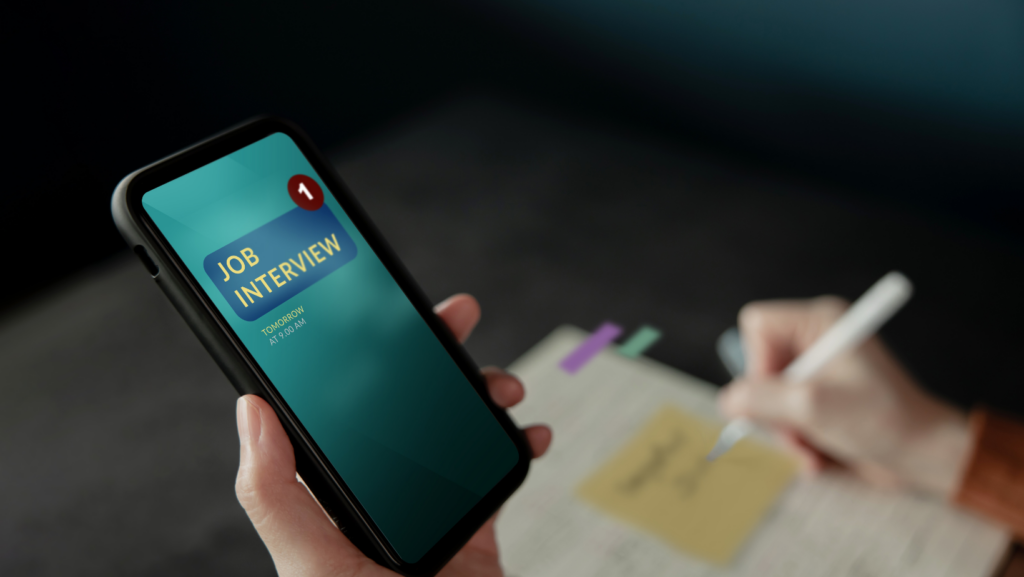
Are you looking for a job and wish to learn more about recruitment processes within recruitment agencies? You have come to the right place! Let’s start at the beginning and focus on the intake interview: the expectations, the format, and the goals.
Intake interview: Definition
An intake interview is quite short, the goal for the recruiter is to quickly grasp what your motivations are for the role, get a better understanding of your experiences and finally know more about your personality. Usually, it lasts between 15 and 30 minutes during which you get a presentation of the brand, a more thorough job description and get asked general questions.
The format
The intake interview is the next step after you applied for a new role. It commonly represents your first interaction with your recruiter, who will have previously emailed you to plan this interview. The usual structure of an intake interview is the following :
- Presentation of the interviewer
- Presentation of the brand
- Presentation of yourself
- Presentation of the job
- Questions about you, your experiences and the vacancy.
At the end of the intake interview, the recruiter knows whether or not you fit the role as well as if you will thrive within the company culture.
The expectations
It is important that you keep in mind that the recruiter will be evaluating you on different criteria during this interview: communication skills, behaviour, personality, and capacity to present your experience in accordance with the opportunity… As you may have guessed by now, even if it is short it is not an interview to go unprepared for, they are questions that you can and should have an answer ready for.
- Can you present yourself? If there is one question you should have a prepared speech for, it is this one. It will be asked throughout the whole interview process. Unfortunately, candidates tend to lose themselves in the question and go back and forth when remembering details they forgot to mention. In order to avoid that, the most efficient way to answer is the funnel method. The funnel method consists in starting with general information about yourself and ending your answer with specific information. The perfect way to answer would be to first quickly present the values and qualities that define you best, your educational background and less significant experiences that are still worth mentioning and to end with the most interesting work experience. By interesting, we mean the one that is closest to the job you applied to or gave you the most important skills for the new role. This last part shows the recruiter that you did your research, know how to present yourself efficiently as well as started to picture yourself occupying the role.
- What kind of job you are interested in? Here the recruiter is trying to see two things: if you understood the job description and if you match other roles they have available.
- What is your understanding of the job description? There, it is important for you to be able to provide your own explanation of the job description and not just read back to the recruiter the job offer you found online. This is an opportunity as well for you to align the position’s mission you are applying for with experiences you’ve had previously.
- What is your ideal work situation? What kind of companies do you see yourself in? Here the recruiter wants to see what kind of work environment you are hoping for, how you view your colleagues as well as how you act as one.
- Why do you think you are a good fit? This is an alternative question to the one mentioned before. Here the recruiter expects you to demonstrate your knowledge of the position as well as your ability to match your skills to the position’s requirements. Do not forget to justify everything you state to the recruiter. For example, don’t just say “I am extremely creative”, but “I am extremely creative as you can see with my job experience in 2020 where I got the opportunity to rebrand my brand’s social media completely and rose up to the challenge”.
- Why are you looking for a job? Why did you leave? Here the recruiter is trying to figure out how it went with your previous company. Did you get fired? What was missing from your previous job? Make sure that the answer you give is not negative towards your previous employer. Indeed, it gives the recruiter an idea of how you would speak about their brand if you happen to leave at some point. Answer honestly and stay neutral.
- What kind of person are you? How would your friends describe you? This question allows the recruiter to perceive whether or not you fit into the company’s environment as well as the team you would be working with. It is important to be yourself as it is important that you end up in a company in which you feel comfortable.
- Why the Netherlands? When do you plan on moving? If you are an expat that hasn’t moved to the Netherlands yet (housing guide) make sure you have a precise answer to that question. Indeed, the recruiter won’t present you to their clients if they feel that your plan to move here is not serious. To answer correctly to this question make sure to mention, the date you plan on moving, where you think about living, if you already have been to the Netherlands, and if you know someone already living here…
- What languages do you speak? As we are a recruitment agency specialised in the recruitment of multilingual job seekers, it is important for us that you are able to share your language proficiency with the CEFR levels so we can show an accurate representation of your skills to our client.
- What is your salary expectation? It is important for you to prepare that question and justify the salary you aim for. Make sure to study the market, look up the salary given to similar positions.
Last advice
the intake interview may seem quite daunting after seeing all the different questions you need to be able to prepare but do not worry it is quite simple. Once you have your answer prepared you can succeed in any intake interviews that may come your way.
- Be yourself: an intake interview is not only for us but for you to evaluate whether are not the position and company are made for you.
- Be honest: never say something you do not actually think in order to “fit in” there is no point as you wouldn’t be happy if you end up in a company that does not match your personality.
- Always justify your answers: give examples of situations you encountered during your previous work experiences.
- Always prepare questions: it is an easy way to demonstrate your motivation and preparation. It is also a great way for you to know more about the job and your future company.

Abroad Experience International Recruitment wishes you the best of luck for your next intake interview!
Do not forget to follow us on social media to be updated on new blogs, free guides and job openings: Instagram, LinkedIn, and Facebook!
